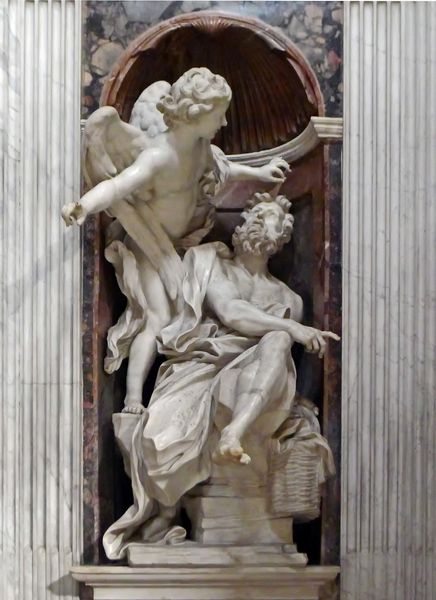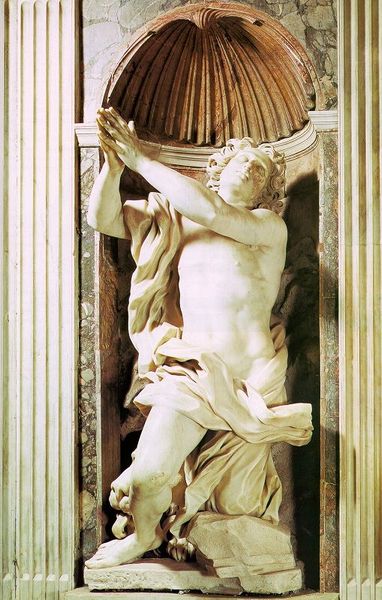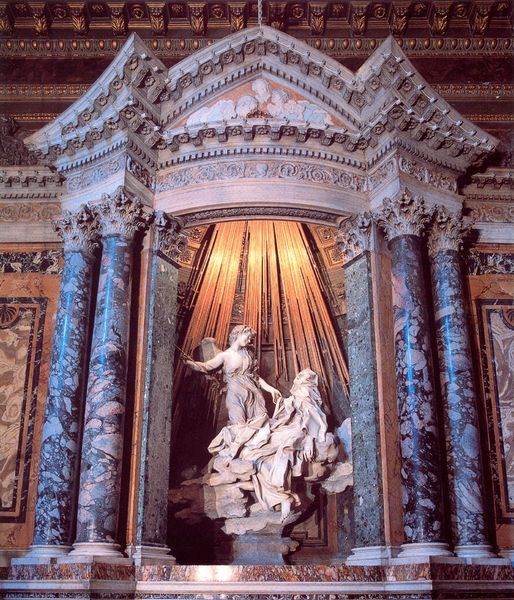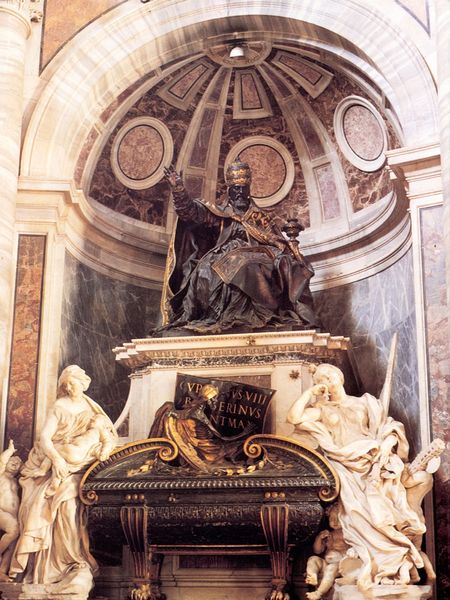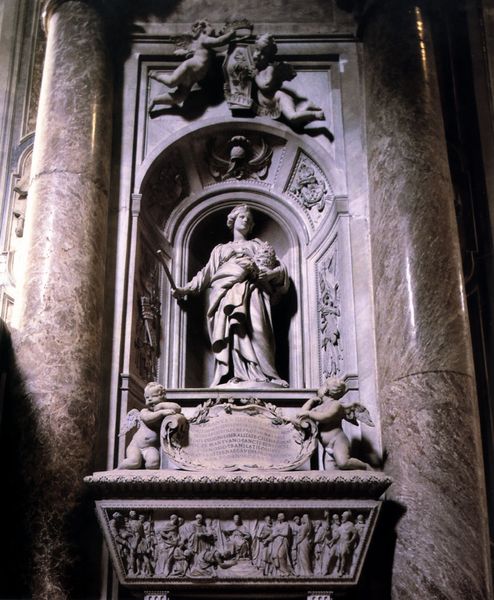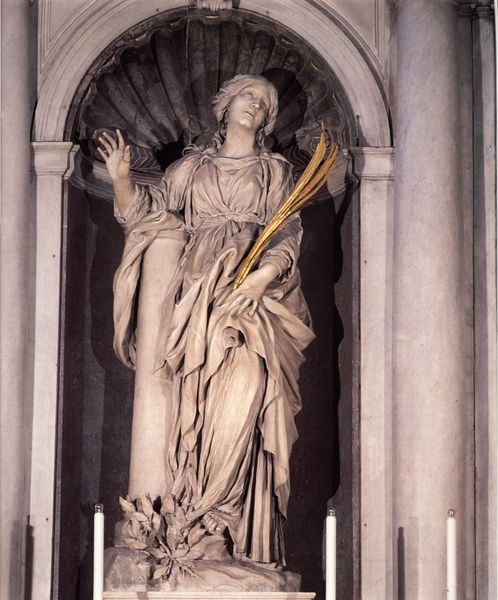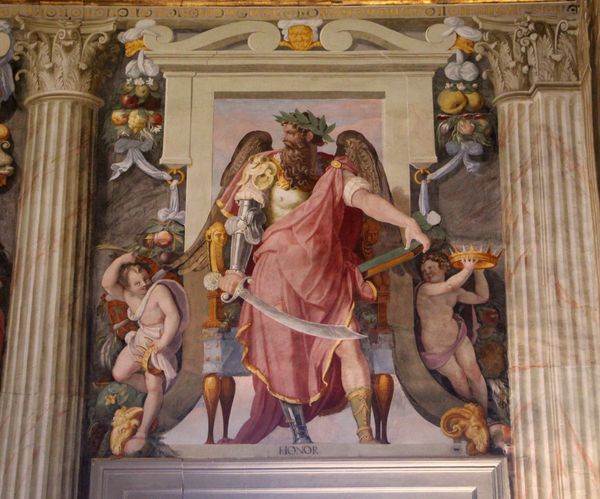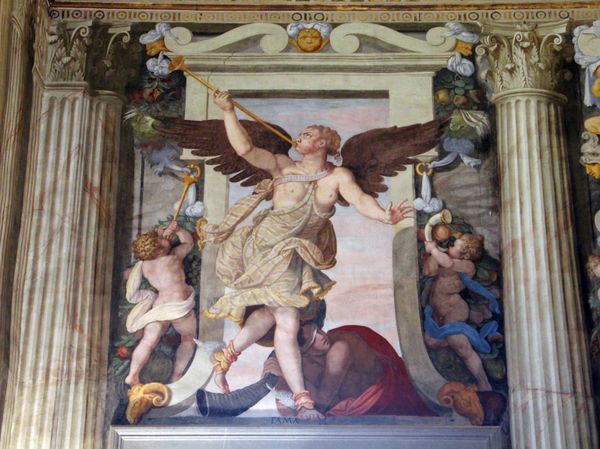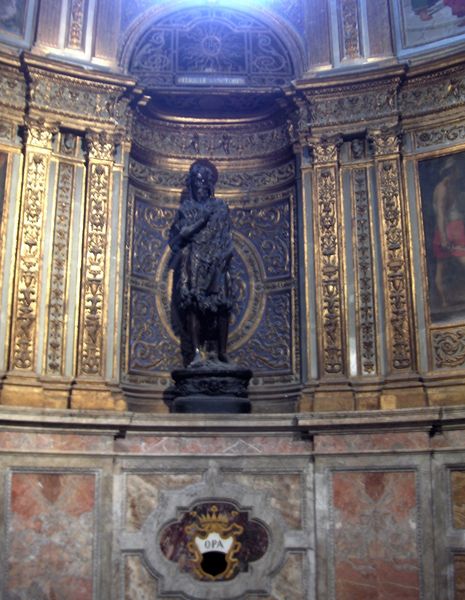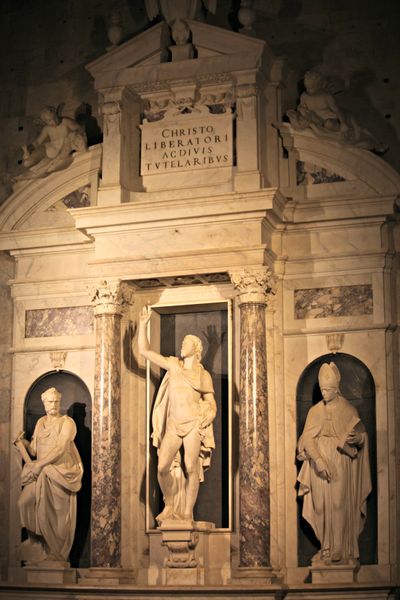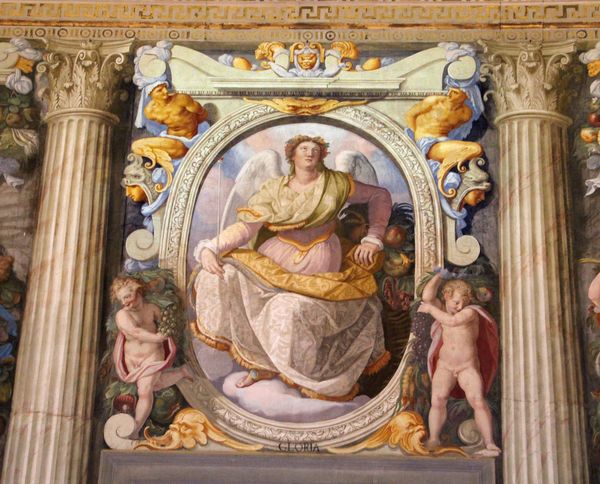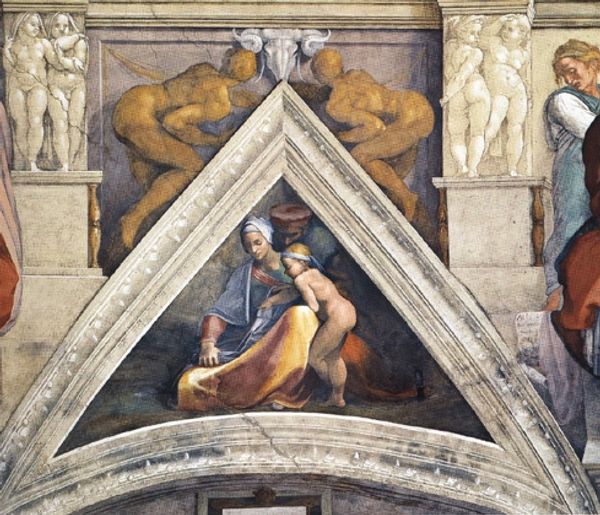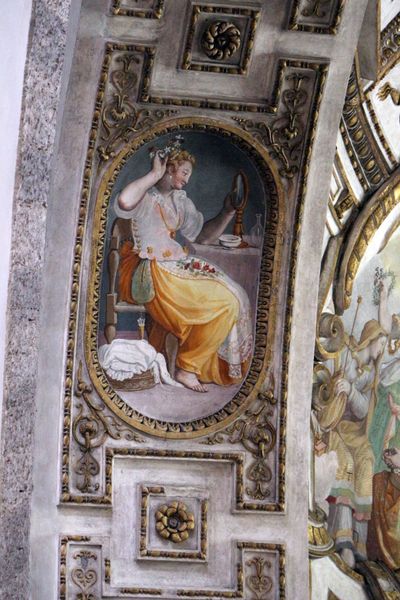
carving, public-art, sculpture, marble
#
portrait
#
public art
#
statue
#
carving
#
baroque
#
sculpture
#
holy-places
#
public-art
#
figuration
#
historic architecture
#
traditional architecture
#
sculpture
#
christianity
#
history-painting
#
marble
#
statue
Copyright: Public domain
Gian Lorenzo Bernini created this marble sculpture of St. Longinus in the 17th century. Marble, prized for its purity and ability to capture light, was the quintessential material for grand sculptures during the Baroque era. Bernini wasn't just carving stone; he was orchestrating a complex operation. Quarrying the marble itself was an enormous undertaking, requiring skilled laborers to extract massive blocks from the earth. The marble was then transported to Bernini's workshop, where a team of assistants would have roughed out the form, following the master's design. Bernini himself would then have added the crucial finishing touches, bringing the figure to life with his virtuoso carving. The smooth skin of Longinus contrasts with the rougher texture of his drapery, creating a dynamic interplay of light and shadow. The spear he holds seems almost weightless, a testament to Bernini's skill in manipulating the stone. Consider how much labor and resources went into making this artwork. By understanding the material and the making, we gain a deeper appreciation for the artistry and the social context in which it was created, collapsing any perceived distinction between art and craft.
Comments
No comments
Be the first to comment and join the conversation on the ultimate creative platform.
